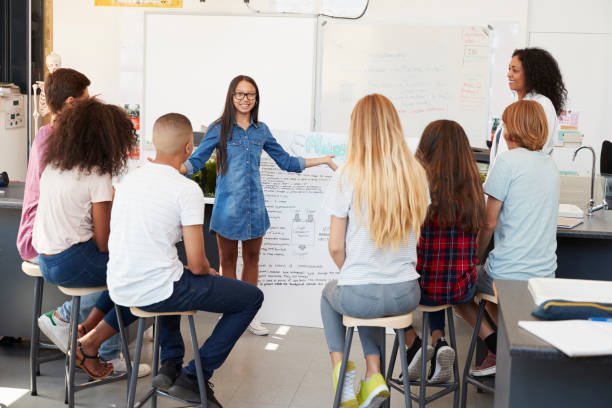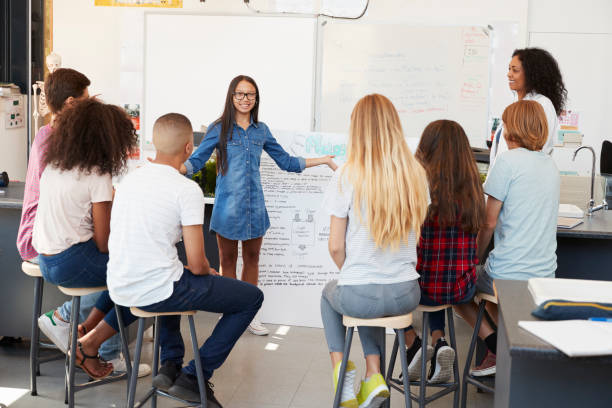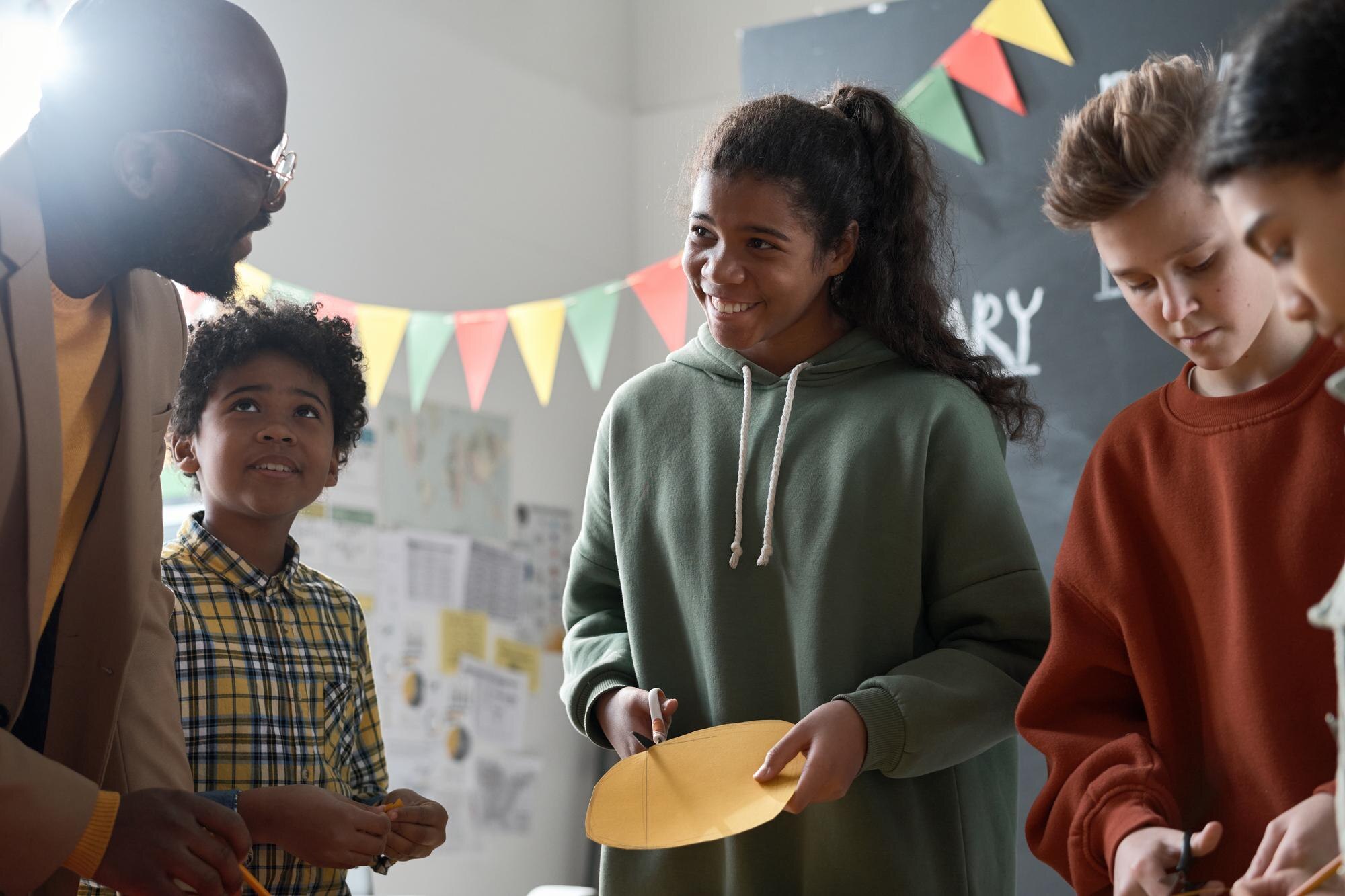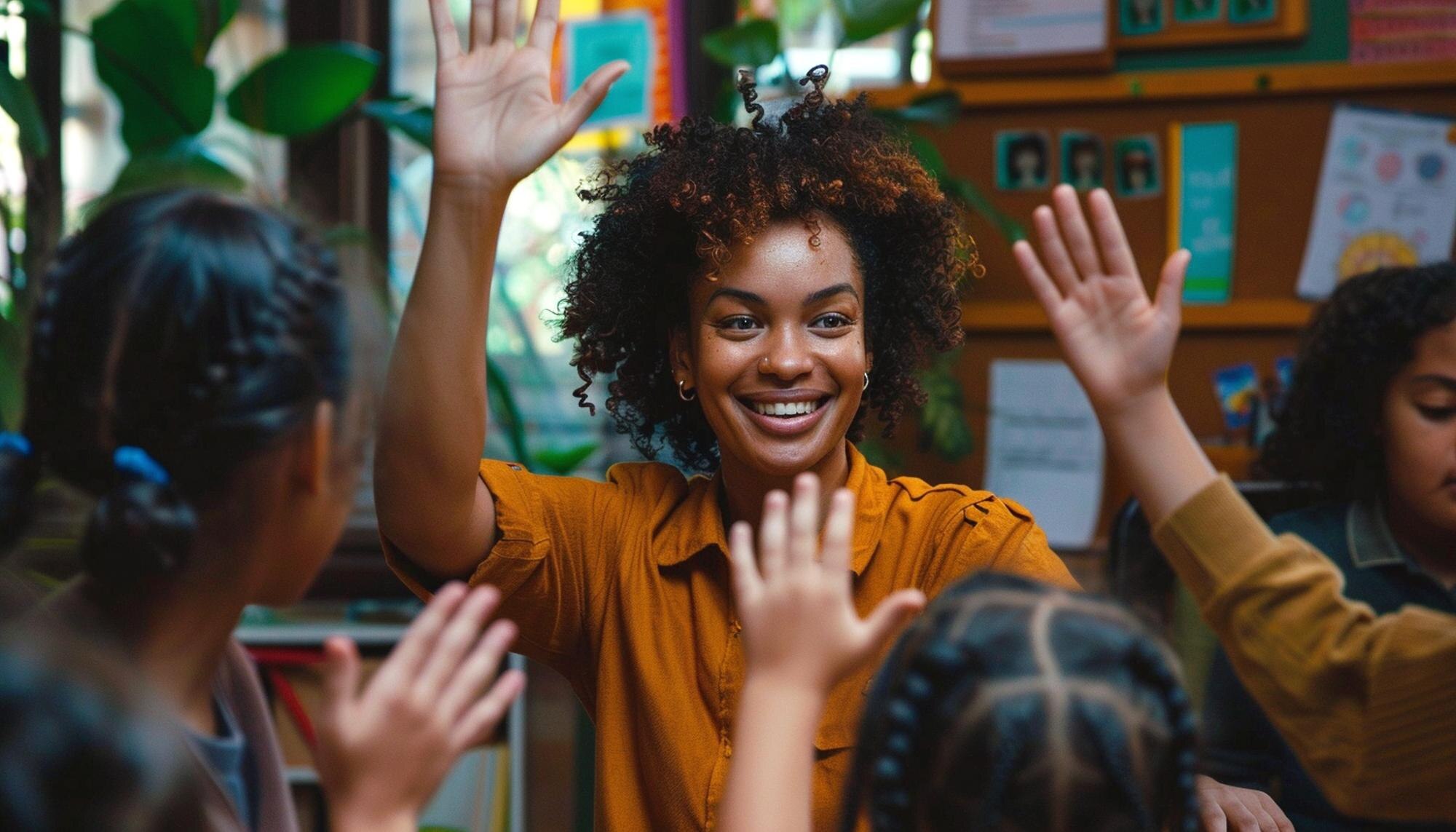
Schoolgirl presenting in front of science class, close up
Empowering Gifted Students: Top Strategies for Educators to Foster Resilience and Confidence
Gifted students often face unique emotional challenges. As an educator, you might see them struggle with anxiety or perfectionism, yearning for support. Imagine a classroom where these bright minds not only shine academically but blossom emotionally. That’s the goal. Through targeted resilience strategies and confidence-building exercises, you can create an environment where gifted students thrive. Discover practical tools that empower both you and your students, fostering growth and emotional intelligence. Try implementing these strategies in your classroom today and watch your gifted students flourish!
Building Resilience in Gifted Students

Building resilience is crucial for gifted students who often face high expectations and pressure. By fostering resilience, educators can help these students manage stress and bounce back from challenges. Here are some effective strategies to build resilience in your classroom.
Encourage Safe Risk-Taking
Promoting safe risk-taking is essential for gifted students to push boundaries and learn from experiences. Creating a classroom culture that celebrates risk-taking without fear of failure can be transformative.
Set Clear Boundaries: Define what constitutes a safe risk and ensure students understand the difference between calculated risks and reckless behavior.
Model Risk-Taking: Share your own experiences of taking risks and learning from them. This can inspire students to step out of their comfort zones.
Celebrate Attempts: Acknowledge students’ efforts, regardless of the outcome, to build their confidence and resilience.
Encouraging students to take risks can help them develop problem-solving skills and adapt to new situations, ultimately fostering a resilient mindset.
Normalize Mistakes as Learning
For gifted students, mistakes can often feel like failures. Normalizing mistakes as part of the learning process is vital to building resilience.
Create a Safe Environment: Encourage students to share their mistakes openly. This will help them understand that mistakes are opportunities for growth.
Reflect on Mistakes: Guide students in analyzing their errors to identify what went wrong and how they can improve.
Celebrate Growth: Highlight how students have learned from past mistakes, reinforcing that errors are a stepping stone to success.
By reframing mistakes as learning experiences, educators can help gifted students build resilience and confidence.
Foster a Growth Mindset
Fostering a growth mindset is pivotal for gifted students to view challenges as opportunities. Encouraging this mindset can lead to resilience and lifelong learning.
Praise Effort: Focus on the process rather than the outcome. This encourages students to value hard work and perseverance.
Teach Brain Plasticity: Educate students about the brain’s ability to grow and change with effort, reinforcing the idea that abilities can be developed.
Challenge Comfort Zones: Push students to tackle tasks slightly beyond their current abilities to foster growth.
A growth mindset encourages students to embrace challenges and view setbacks as part of the learning journey. For further insights, explore these strategies.
Confidence Building Techniques

Confidence is key for gifted students to express their ideas and take initiative. Here are techniques to build confidence in your gifted learners.
Celebrate Unique Strengths
Recognizing and celebrating the unique strengths of gifted students can significantly boost their confidence. By focusing on their unique talents, educators can foster an environment of empowerment and self-belief.
Identify Talents: Help students recognize their strengths through assessments or self-reflection activities.
Showcase Achievements: Provide opportunities for students to share their talents with peers, such as presentations or talent shows.
Personalized Feedback: Offer specific praise that highlights individual strengths, reinforcing a positive self-image.
Celebrating strengths helps students appreciate their uniqueness and encourages them to contribute confidently. To learn more, visit this educational resource.
Promote Peer Collaboration
Peer collaboration offers gifted students the chance to share ideas and learn from one another. Working together can enhance their confidence and social skills.
Group Projects: Organize group activities that require cooperation and the sharing of diverse skills.
Peer Mentoring: Pair students with peers to offer guidance and support, fostering mutual learning.
Discussion Circles: Facilitate open discussions where students can express ideas and learn to appreciate different perspectives.
Peer collaboration nurtures a sense of belonging and confidence in expressing opinions. For more strategies, check out these tips.
Provide Constructive Feedback
Constructive feedback is essential for helping gifted students understand their progress. Providing clear, actionable feedback can build their confidence and drive improvement.
Be Specific: Offer detailed feedback that highlights strengths and areas for growth.
Encourage Self-Assessment: Teach students to evaluate their work, promoting self-awareness.
Focus on Growth: Emphasize progress and improvement over time, reinforcing the value of effort.
By offering constructive feedback, educators can help students gain confidence in their abilities and motivate them to strive for excellence.
Emotional Intelligence in Gifted Education

Emotional intelligence plays a vital role in the overall development of gifted students. Developing this skill helps them manage emotions and build healthy relationships. Here are ways to enhance emotional intelligence in gifted education.
Develop Self-Awareness
Self-awareness allows gifted students to recognize their emotions and understand their impact. Building self-awareness is the first step toward emotional intelligence.
Journaling: Encourage students to reflect on their feelings and experiences through journaling.
Emotional Vocabulary: Teach students to identify and articulate emotions accurately.
Self-Reflection: Promote activities that encourage introspection and self-analysis.
Developing self-awareness helps students make informed decisions and manage their emotions effectively. Explore more self-awareness strategies.
Practice Empathy and Understanding
Empathy is crucial for gifted students to navigate social interactions. Encouraging empathy helps students build stronger connections with peers.
Role-Playing: Use role-playing activities to help students understand different perspectives.
Story Sharing: Facilitate sessions where students share personal stories and experiences.
Active Listening: Teach students to listen attentively and respond thoughtfully.
Practicing empathy fosters compassion and enhances interpersonal relationships, crucial for emotional intelligence.
Encourage Mindfulness Activities
Mindfulness activities can help gifted students manage stress and enhance focus. Incorporating mindfulness into education can improve emotional regulation and well-being.
Guided Meditation: Introduce short meditation sessions to help students relax and center their thoughts.
Mindful Breathing: Teach breathing exercises to manage stress and increase concentration.
Mindfulness Journals: Encourage students to document their mindfulness practices and reflections.
Mindfulness activities support emotional balance and resilience, equipping students with tools to handle life’s challenges. 🌟

A certified Heal Your Life® Coach with 20+ years in education and emotional development. Supports gifted teens in navigating anxiety, perfectionism, and identity challenges, while equipping parents with practical tools for lasting transformation. Sessions blend emotional healing, mindset mastery, and strategic empowerment.



